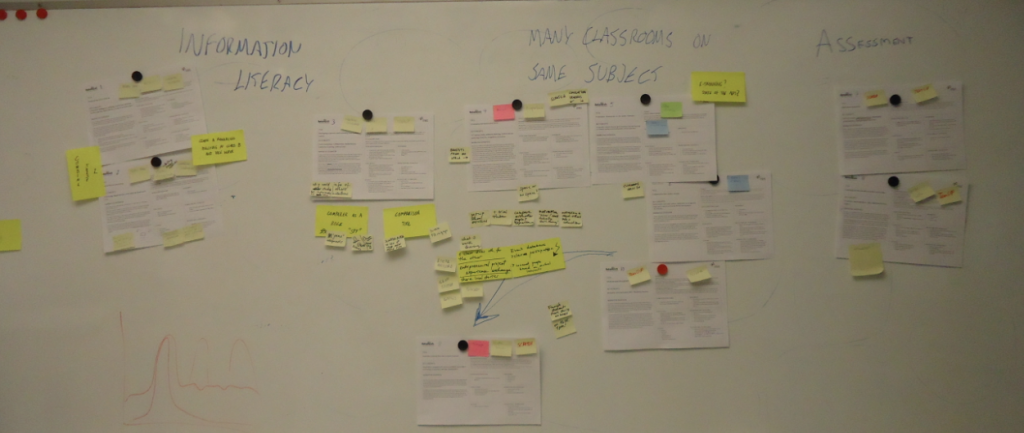Although the fleshed out scenarios were not available yet, in last week’s group meeting, we wanted to get a feeling for how many of the 10 highest ranking cycle 2 mini-scenarios related to our initial prototype ideas.
Here the results of our very quick quantitative assessment:
- People bank: 5
- Reflex: 1
- Comparing information: 3
- Plates 2
- Teamup: 6
- Scratch: 5
- simulation trading: 2
- Create games: 1
During this session, we also recognized three dominant clusters:
- Information literacy
- Many classrooms on same subject
- Assessment
To summarize, the motivation of learners to view information collections of others emerged as a challenge to watch out for in the participatory design summaries of cycle 2. Our blunt questions “what is worth sharing?” and “how can one class serve another?” inspired following ideas:
- Exchanging entrepreneurial expertise: Learners could, for example, set up school services for their own school or for another, and trial them. Comparing experiences with other learners would be motivating, because the service efforts could have a real effect on the school and other parts of the society.
- Sharing local stories: “12.05. / 1pm: Finnish learners share a story about bears!” Connecting people based on mutual interests could be done via clip shows, games, podcasts, and a event database.
Lastly, the “comparing information” idea was discussed, including aspects of a comparison tool with a scaffolding function, and a cross curricular team activity, in which teams of, for example, a social science class document the team work process of biology class teams.








